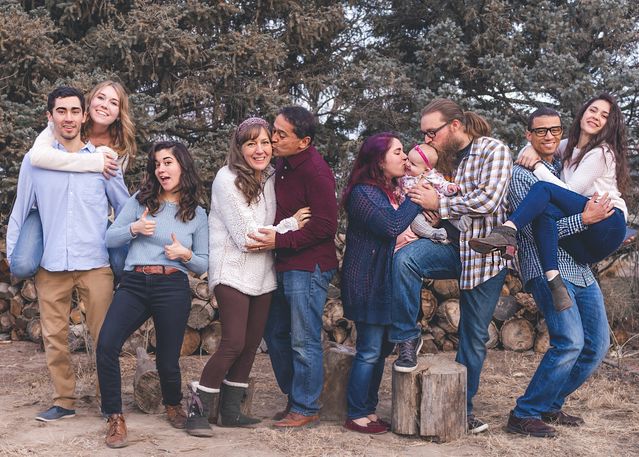Relationships
Tips for Bringing Love to the Next Difficult Family Gathering
You can bring light to any occasion and take care of yourself at the same time.
Posted December 2, 2019 Reviewed by Matt Huston

Family gatherings can be a challenge at the best of times. Even loving families that communicate well might struggle to deal with any number of difficulties: illness or death, lost jobs or financial insecurities, disappointments, petty arguments, or misunderstandings. Families that grapple with healthy communication may have an even harder go.
How then can we bring love and comfort to our family during gatherings that may have the potential to be difficult to navigate? Here are some tips.
Don’t Take Anything Personally
Even when vitriol, anger, and hurt feelings are hurled at you, they have nothing to do with you. There’s an old saying that hurting people hurt others. Do your best to de-escalate the situation, even if that means walking away. Getting pulled into someone else’s drama isn’t worth being “right.” Choose happiness over right-fighting.
Stay Away from Drugs and Alcohol
Drugs and alcohol lower inhibitions. They allow us to say and do things we wouldn't normally. In any event, it's a good idea to limit or abstain from substance use. Clear-headed interactions are necessary for situations that could be tumultuous.
Be of Service
Nothing diffuses a challenging situation more than volunteering to do some sort of task. Take out the trash. Help with the dishes. Watch the kids. Teach your nephew to tie his shoes or help your aunt by basting the turkey. Being of service takes the pressure off others and helps us feel good about ourselves.
Set Boundaries
Every year, people go to events that make them feel bad about themselves and stay longer than is healthy. If your family is abusive, don’t attend the gathering. There are other options for a wonderful holiday with people who appreciate you. We can’t choose our relatives, but we can choose our “family.” Better yet, help someone else, deliver meals to people who need them, have dinner at the local senior center, or cook a holiday meal at the homeless shelter.
If you are going to an event where you expect contention, decide how long you will stay ahead of time and stick to that plan. If there are subjects that are off-limits, state that clearly. “Mom, I love you, but I am not going to discuss my job search tonight.”
Stand in Your Truth
Standing in our truth is about hanging on to who we are in difficult times. Sometimes, people in the family have trouble with who we are—our body, sexual orientation, choice of work or home, or something else is viewed as “wrong” or in some way “unacceptable.” Those judgments don’t need to change who we are. Knowing ourselves and what is important is critical to being content in any situation.
Get Support
Before you go, call your friends and let them know that you’re nervous about attending your family gathering. Pray. Meditate. Connect with people you like.
While you are at the event, seek out the company of allies. Take a break by going for a walk if you need to. Step out to make a phone call or text with someone who can give you encouragement.
After the activity, give yourself time and space to decompress. Go with a friend to a movie or let your therapist know that you’re OK. Ask for help if you need it.
Remember, It’s Only a Day
We tend to put a lot of importance on family events, but really, whether it’s a holiday dinner, wedding, birthday, funeral or a reunion, it’s just a day. We take care of ourselves by honoring our family as best we can, setting firm boundaries, and not engaging in negativity whenever possible. When things do go downhill, we serve ourselves by being peacemakers when appropriate or leaving if the situation warrants. We have opportunities to get and give support and to be of service – just as we do on any day of the year.


